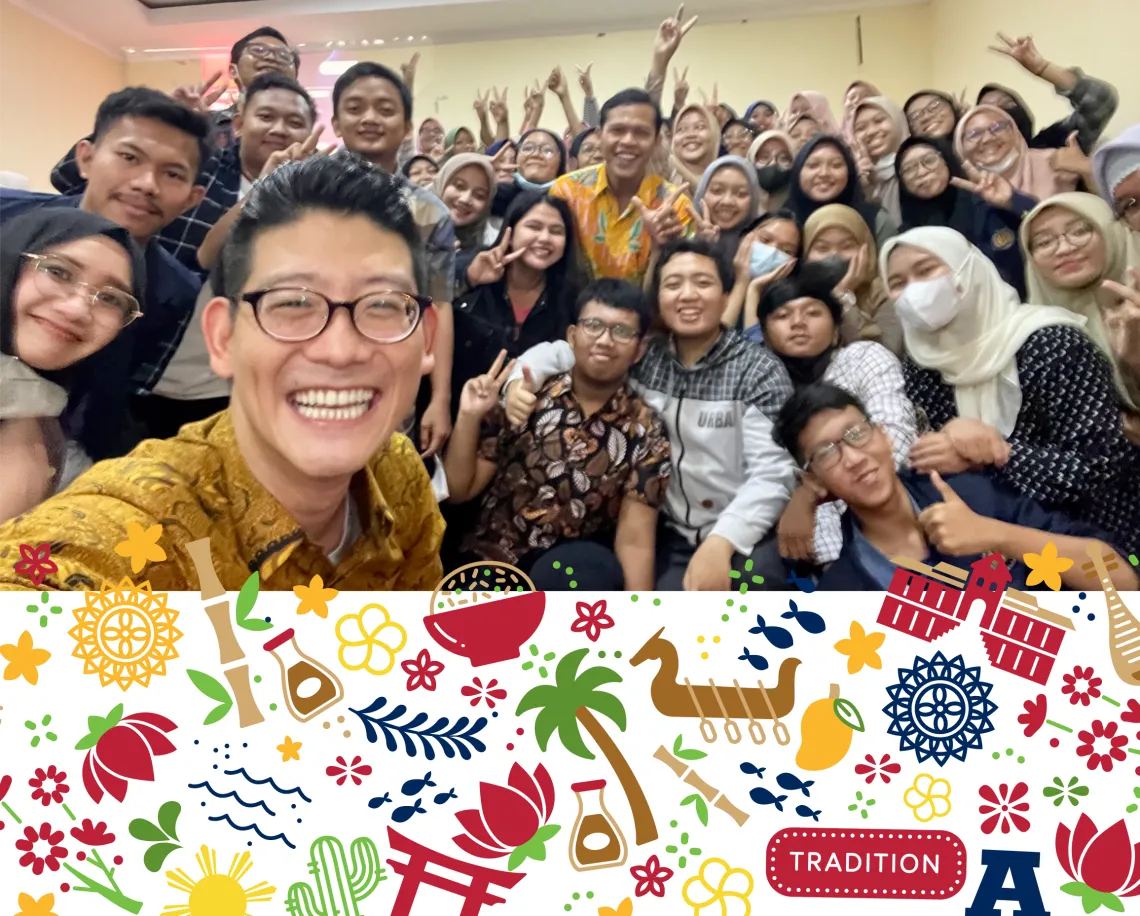Asian Pacific Islander Desi American Heritage Month Faculty Spotlight: Dr. Aditya Adiredja

Dr. Aditya Adiredja, Associate Professor in the Department of Mathematics at the University of Arizona.
The College of Science is celebrating Asian Pacific Islander Desi American (APIDA) Heritage Month with Dr. Aditya Adiredja, an Associate Professor in the Department of Mathematics.
The College of Science spoke with Dr. Adiredja, a native of Indonesia and first-generation student, to discuss his journey to the United States and the University of Arizona, his love of learning, and some of his favorite childhood memories.
Dr. Aditya Adiredja
Associate Professor
Mathematics
College of Science: Tell us a little about yourself, your background and your journey to the University of Arizona.
Adiredja: My 14 year-old self would never have imagined where I am today. To start, living in Indonesia, I didn't even know where Arizona was. Becoming a math educator or a research scientist never even crossed my mind in Indonesia, probably because I was so stressed trying to pass my math class while balancing 12 other classes in high school. I left Indonesia at 14 to move to the United States. I knew so little English that I started in an ESL summer class at the local high school. My math class ended up being one of the only things that made sense at the time. So, being an immigrant and a first-generation student, yes, my arrival at the University of Arizona is a product of hard work and perseverance. It is also a result of mentorship by public school teachers, community college professors, doctoral advisors and colleagues who opened doors for me at critical junctures in my journey.
COS: When looking back on your childhood and spending time with family, are there any favorite traditions or memories that stick out to you?
Adiredja: One of my fondest memories is of eating the spiky and strong-smelling durian fruit with my parents and my brothers. We all would sit on the floor of our living room lined with newspapers. My father would use a knife to cut a slit on the fruit and open up the wedges with his hands. And one by one, we would take a piece with our hand and enjoy the sweet custard-like fruit together. It was always a treat and we were just happy being messy together.
COS: Who are some of the people who have made the greatest impact on your life?
Adiredja: I would not be where I am today if not for my mother's decision to move the two of us to the States. As a single parent she trusted her intuition and started me off on this journey. All my accomplishments and success rest on her sacrifices. During my postdoc year, I crossed paths with a gender and women's studies professor who changed my perspective on myself. She helped me stop to see my differences: my race, my history, my queerness, and my language, as a deficit. Instead, she showed me how to begin to recognize them as the things that made me unique and excellent. Being in community with her started me off on the journey to recognize and challenge the everyday impacts of racism, patriarchy, and heteronormativity in our society. Lastly, my life is forever changed by my husband, adopted daughter, and step-son. They have significantly shifted my priorities in life. They taught me what it means to have faith in and root for your loved ones.
COS: What was it that drew you to your area of research and expertise?
Adiredja: My focus on addressing inequities in undergraduate mathematics education is an attempt to change the educational experiences of students who might have similar experiences as me. I have always loved teaching mathematics. However, reflecting on my early experiences learning mathematics, and learning about my students' lives outside of the math classroom have made me realize that the mathematical content is only a part of what makes a math class difficult for many. Deficit narratives about students, especially those who historically have been marginalized in American society, seep into our assumptions about students, our conversations about them, and our interactions in the classroom. They obscure our students' brilliance and tempt us with easy solutions to inequities. I have seen how easily we default to these deficit stories. I have also seen the magic of trusting and having faith in my students to do the math. The joy of seeing my students argue and refine one another's mathematical argument in my classroom is incomparable, and I am working to help other teachers to experience it.
COS: What is your favorite part of being a scientist?
Adiredja: It has to be the never ending opportunity to learn new ideas to solve new problems. Whether I am working on my own research or while advising graduate students, I have the most fun when I get to bring ideas from different fields and be creative in putting them together to help me solve problems. It's like completing a puzzle with friends. Being able to collaborate within and across disciplines and learn from folks outside of STEM, help me expand my horizons and my approach to solving the important problems, even when I want to nerd out on the mathematical content itself.

